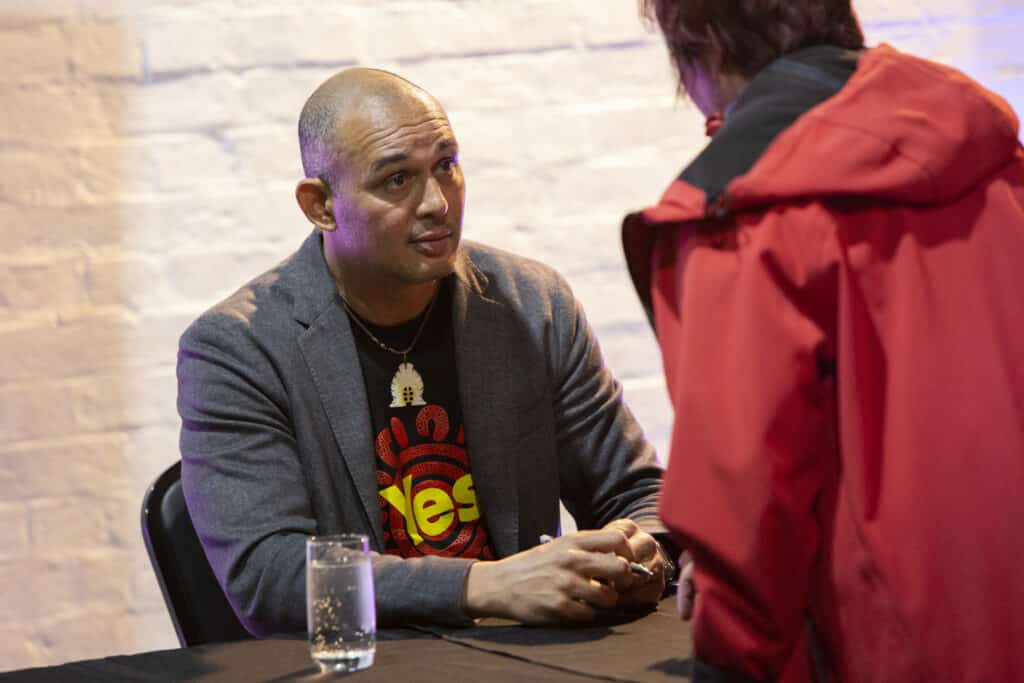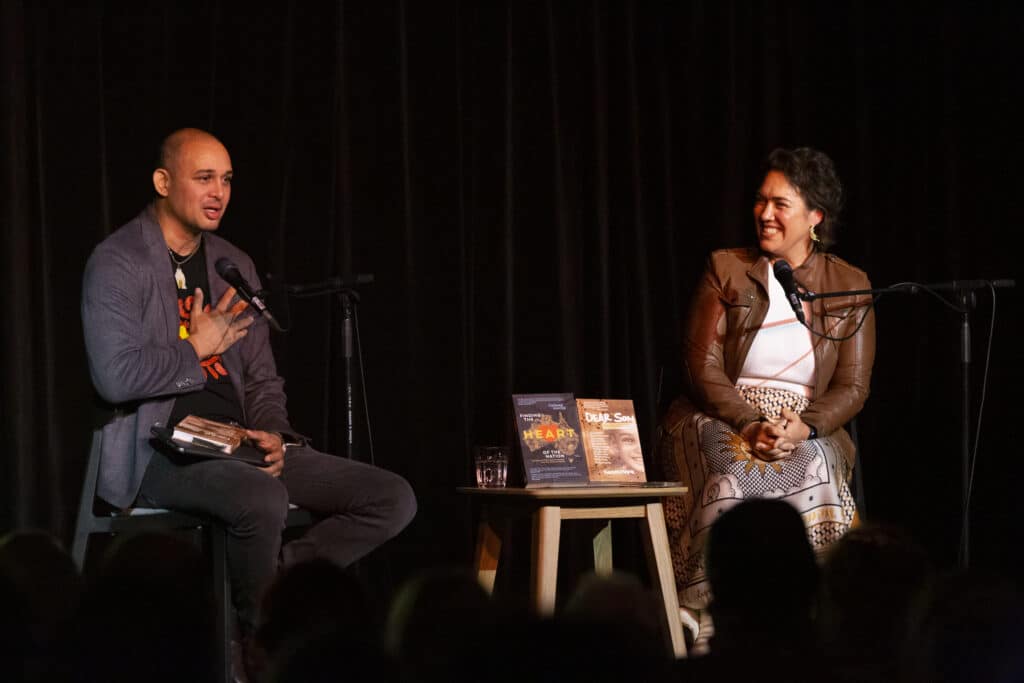It’s not right that one in six Australian children are living in poverty, higher than the percentage of all age groups.
Living in poverty hinders children’s brain development, their readiness for school, attainment at school and their physical and mental health. We know that a child growing up in poverty has more than three times the likelihood of living in poverty as an adult than a child who was never poor.
Far too many Aboriginal and Torres Strait Islander children are living in poverty, and the 3rd report on the 2020 National Closing the Gap Agreement, published in July 2023, shows their school readiness is actually going backwards. In 2016, more than one in three Aboriginal and Torres Strait Islander peoples were estimated to be living in poverty, more than three times the rate for all Australians. Sadly, we do not expect much improvement when analysis of the 2021 census is done. This is why Anti-Poverty Week accepts the invitation to walk with our First Nations brothers and sisters in seeking a Voice to Parliament enshrined in the Constitution. Our purpose is to help the Australian community understand poverty and to take action collectively to end it. In 2023, our 21st year, we are campaigning for an end to child poverty in Australia.
For decades First Nations people have been calling for a say in the policies and programs that affect them. As long ago as 1996 Pat (now Senator) Dodson addressed the National Press Club and said “The track behind us is littered with the relics of policies, programs and projects that failed, that wasted taxpayers’ money and failed to deliver real outcomes to those crying out for them. They failed mainly because they did not include Indigenous people in making the decisions.” This is still the case in 2023.
As Catherine Liddle, CEO of the Aboriginal and Torres Strait Islander children’s peak, SNAICC, has pointed out:“When you look at all the investigations …as a result of the despair that we see in our communities, they all point to poverty – and that poverty absolutely is rooted in a lack of self-determination.” speaking on 7.30 on 6 June 2023.
Over 250 delegates gathered at Uluru in May 2017 building on six months of discussions held around the country with Aboriginal and Torres Strait Islander peoples. They issued a historic statement, the Uluru Statement from the Heart, in the hope of improving the lives of future generations. One of the signatories was Thomas Mayo, a Kaurareg Aboriginal and Kalkalgal, Erubamle Torres Strait Islander man who was chosen to carry the canvas of the statement around the country showing it to communities. Mayo, now co-author with journalist Kerry O’Brien of The Voice to Parliament Handbook – All the details you need, wrote in The Saturday Paper: “it is the love we have for our children that gives us the courage to try something new – we have never before had a constitutionally enshrined Voice.”

I recently had the privilege of listening to Catherine Liddle speak about how the Voice, by giving their people a say in the policies and programs that affect them, can provide practical improvements to First Nations children’s learning, health and futures. Catherine and SNAICC are strong advocates for the successful passage of this referendum, “our children deserve no less than yes.”
Unlike non-Indigenous Australians, the majority (six in 10) Aboriginal and Torres Strait Islander people are aged under 30. Yet too many lack access to early years education and suffer poverty and poorer health, meaning they are less ready when they start school and less able succeed in their learning journey. Catherine spoke about the positive impact for children when they could attend Aboriginal controlled early learning and care centres where they received “culturally safe care,” for example at the Yappera Children’s Service in Victoria, as demonstrated in this video.
Catherine told us about Thomas Mayo bringing the original Uluru Statement from the Heart to her home in Alice Springs. “He came like a warrior, carrying this big metal cylinder,” she said. Catherine then spoke about how powerfully it moved her and her Mother, Aunties and Grandmothers, both from reading the words of the Statement for the first time and seeing the signatures of so many Aboriginal and Torres Strait Islander community members around it.
“We felt the ancestors there with us.” Catherine then read some of those words to the audience: “When we have power over our destiny our children will flourish. They will walk in two worlds and their culture will be a gift to their country.”
Photos above supplied, thanks to Castlemaine State Festival and Shane Carey.

